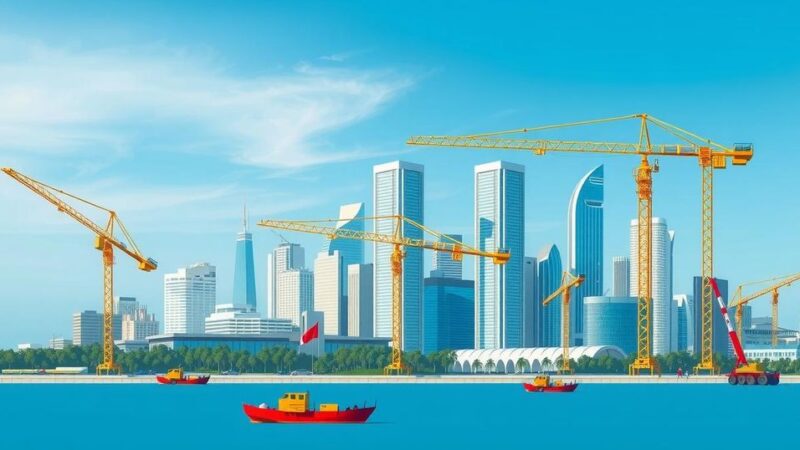Bolivia has officially terminated its gas exports to Argentina as of September 18, concluding nearly 20 years of trade. The cessation was prompted by declining import volumes and warmer weather reducing energy demand in Argentina. While exports to Brazil continue, the focus shifts to Argentina’s initiatives for gas exports. Negotiations for alternate routes and pipeline reversals are underway to manage regional energy demands effectively.
According to a recent report by Reuters, the state-run Bolivian company Yacimientos Petroliferos Fiscales Bolivianos (YPFB) has confirmed that Bolivia ceased its gas exports to Argentina on September 18. This marks the conclusion of nearly two decades of gas trade between the two nations. The decision comes amidst Argentina’s declining imports from Bolivia, which had already diminished to 2 million cubic meters per day—minimal compared to Argentina’s total consumption of 130 million cubic meters per day. The initial contract set for termination in July was extended by two months, allowing for a final phase of exports. Factors contributing to the cessation include unseasonably warm weather and reduced demand for gas in Argentina. Despite this halt in exports, Bolivia continues to supply gas to Brazil. The challenge arises as the Argentine government explores new avenues to export gas, particularly from the Vaca Muerta shale formation, through alternative routes. Discussions between energy companies from Argentina and Brazil are focused on potentially reversing the pipeline flow established for Bolivian gas to facilitate gas exports to neighboring countries. Previous proposals have faced obstacles due to tariff negotiations and high fees suggested by Bolivia for the transit use of the pipeline. Current deliberations include collaborations with Uruguay and Paraguay, although reverting the existing Bolivian pipeline remains the most feasible option for securing gas for regional consumption.
The cessation of gas exports from Bolivia to Argentina underscores significant shifts in South America’s energy dynamics. For years, Argentina has struggled with a negative energy balance, reliant on gas imports to meet its energy demands. Recent projects aim to allow Argentina to export its gas to surrounding nations and the global market through liquefied natural gas (LNG). Bolivia, once a key gas supplier in the region, has seen a marked decline in its exports as its production capabilities dwindle and regional competition for energy resources escalates. This situation has necessitated changes in how gas is managed and exported among countries in South America.
In summary, the stoppage of Bolivian gas exports to Argentina signals a pivotal moment in the energy relations of South America. With Argentina’s project developments, the country aims to not only address its own energy needs but also position itself as a future gas exporter. Nevertheless, the interruption in Bolivian supply raises concerns about the fluidity of regional energy trade and the necessity for innovations in export strategies. The ongoing negotiations and potential routes, including discussions with Brazil and proposals through Uruguay and Paraguay, will be critical in shaping the future of gas trade in the region.
Original Source: www.worldpipelines.com






